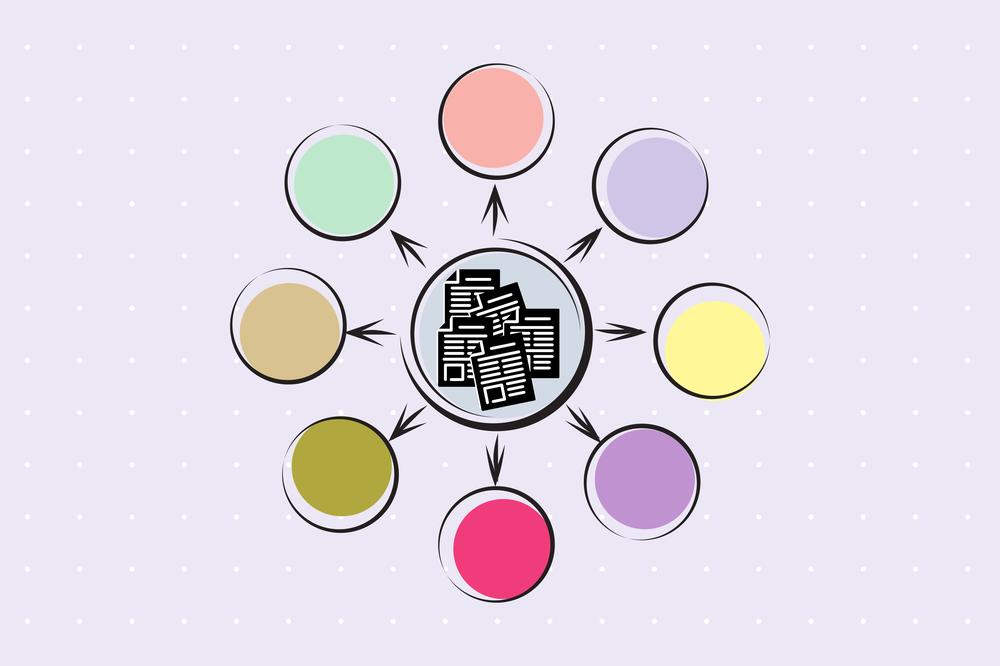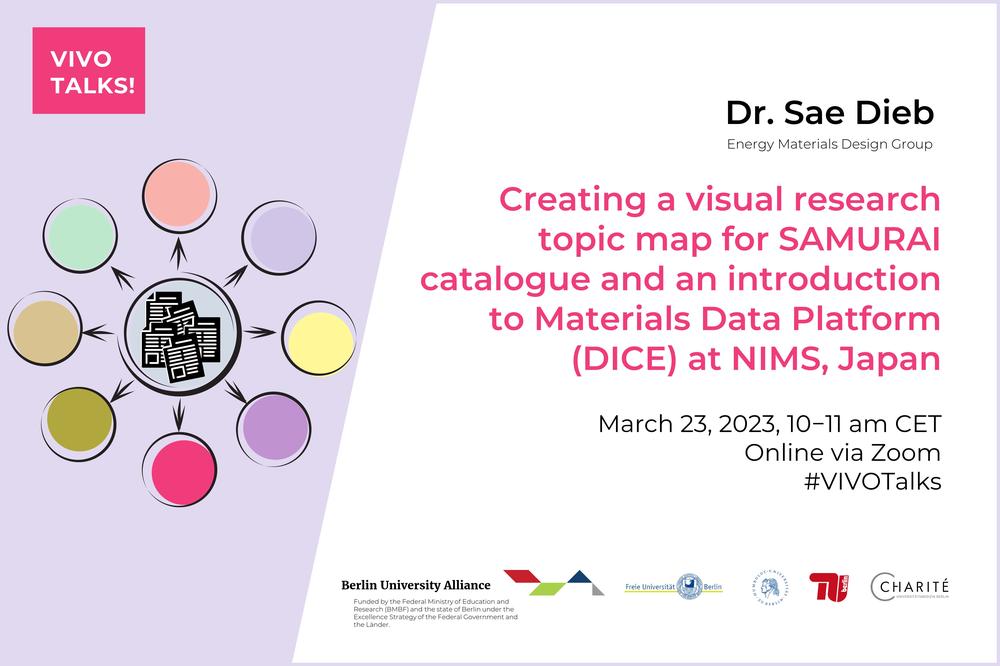VIVO Talks!
Creating a visual research topic map for SAMURAI catalogue and an introduction to Materials Data Platform (DICE) at the National Institute for Materials Science (NIMS), Japan
Overview
The approach of creating a visual research topic map for materials science researchers from a large collection of archived research papers using natural language processing (NLP) has become of more importance with the expansion of research information. Visualization of research topics shows the connection of researchers to related topics aiming to find potential collaborators, which can increase potential research cooperations. Dr. Sae Dieb, Energy Materials Design Group, will present the use of this approach on SAMURAI, a directory service for the researchers of the National Institute for Materials Science (NIMS), Japan.
“VIVO Talks!” with Dr. Sae Dieb will be held on March 23, 2023 from 10-11 am CET. The event series is hosted by the “VIVO Research Information Platform” CMS-Project Team within the frmaework of the Berlin University Alliance. The the presentation and video of this talk are available online.
👉 Presentation and Video
Creating a visual research topic map from a large collection of archived research papers using natural language processing (NLP).
Image Credit: VIVO Research Information Platform
About this Talk
In “VIVO Talks!” Dr. Sae Dieb is going to point out an application of natural language processing to visualize output topics for each researcher in the SAMURAI catalogue to maximize information absorbance for general audience and encourage collaboration. SAMURAI is a researchers catalogue that is connected to institutional repositories and other external databases, which is of great importance for the VIVO-Team at CMS.
In addition, Dr. Dieb will introduce NIMS DICE platform, which is materials data platform that handles materials data from their points of entry (data collection) to their points of exit (data service). High-throughput/high-quality data collection/registration systems were implemented to serve as the points of entry for data from various sources, such as experimental instruments, literature, and repositories. These data are stored and interconnected by comprehending the data structurally and hierarchically using informatic techniques such as RDF and Linked Data, adding values to the stored data.
The presentation from this session as well as the full recording of Sae Dieb's presentation will be available online.
About the Speaker
Dr. Sae Dieb (ORCiD) is a Researcher at the Energy Materials Design Group, Research and Services Division of Materials Data and Integrated System (MaDIS), National Institute for Materials Science (NIMS), Japan.
He has a PhD. Degree in computer science from Hokkaido University, Japan in which, he uses natural language processing to extract information from nanocrystal devices development publication.
His main research interest is to apply informatics principles, particularly data science and machine learning to support materials innovation. He works in the interdisciplinary domain of materials informatics collaborating with both computer scientists and materials scientists.
"VIVO Talks!" with Dr. Sae Dieb, Researcher at the Energy Materials Design Group, National Institute for Materials Science (NIMS).
Image Credit: VIVO Research Information Platform
About “VIVO Talks!”
In the process of developing a VIVO-based research information platform for the Berlin University Alliance (BUA), we value regular discussions with our stakeholders across the four BUA organizations and beyond. In the online event series “VIVO Talks!” we bring together all interested parties to address key questions around the development of the platform. After an insightful presentation on a specific topic, we turn to the audience for further discussions in the fields of research information, research infrastructure, research management and many more.
About VIVO Research Information Platform
At CMS, a four-member project team is currently developing a federated platform for the Berlin University Alliance to present information of researchers, their research and activities within the alliance. Using the open source software VIVO, semantic web technologies allow to present people and their work in a structured and searchable way. In the current development phase (until end of 2023), research information of cross-institutional collaborations within BUA, called Clusters of Excellence, are integrated into a demonstrator to illustrate the potential of the platform, especially for the presentation of interdisciplinary research.
This project is funded by the Federal Ministry of Education and Research (BMBF) and the state of Berlin within the framework of the Excellence Strategy of the Federal Government and the Länder.
Contact
Fadwa Alshawaf, Project Lead VIVO Platform
Email: fadwa.alshawaf@hu-berlin.de


